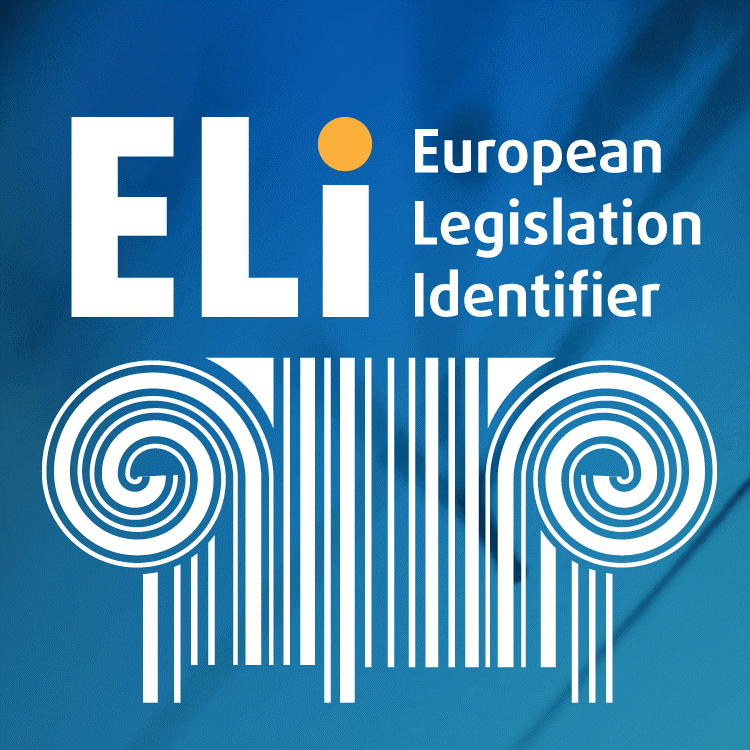Facilitating the exchange of legislation data in Europe

2016.08 European Legislation Identifier (ELI)
You are a citizen, a business, a public authority, a legal professional or an academic that wants to access or share European or national legislation online. The European Legislation Identifier (ELI) provides a solution to uniquely identify European legislation online. ELI allows you to easily access, share and exchange EU and Member State legislation.
What is this action about?
Legislation is today widely available and accessible in electronic formats. However, the way in which information is organised and classified varies in different legal systems and across Member States, a fact that tends to restrict access and reuse.
By providing a solution to uniquely identify national and European legislation online, ELI aims to guarantee easier access, exchange and reuse of legislation. Deploying this new unique identifier and structured metadata to reference and classify legislation published in official journals and legal gazettes of different legal systems will help enhance the visibility, accessibility and reusability.
ELI has been devised to construct a common basis for the semantic accessibility of legislation so that it is sufficiently standardised to provide interoperability of legislative data, whilst respecting each Member State's legislative and legal uniqueness.
What are the objectives?
The objective of ELI is to enable a greater degree of semantic interoperability between European and Member State systems.
ELI proposes a unique identifier (HTTP URI), which should be recognisable, readable and understandable by both humans and computers. In addition, ELI proposes a set of metadata elements to describe legislation in compliance with a recommended ontology.
ELI also takes into account not only the complexity and specificity of regional, national and European legislative systems, but also changes in legal resources (e.g. consolidations, repealed acts, codes etc.). It is designed to work seamlessly on top of existing systems using structured data and can be taken forward by Member States at their own pace.
ELI aims to guarantee cost-effective public access to reliable up-to-date legislation. Benefiting from the emerging architecture of the semantic web, which enables information to be directly processed by computers and humans alike, ELI will allow greater and faster exchange of data by enabling an automatic and efficient exchange of information.
What are the benefits?
- Each aspect of the ELI will be implemented on a voluntary, gradual and optional basis alongside existing identifiers
- Better integration and efficient exchange of information, e.g. transposition of Directives
- Effective and user-friendly access to legislation and exchange of information between heterogeneous systems
- Better integration and efficient exchange of legal information with the EU
What has been achieved?
- Opening of an ELI dedicated space on Joinup
- Publication of a first draft of an ontology extension to describe draft legislation (on Joinup since february 2019)
- Publication of the translation of the ELI ontology in 5 languages (French, Italian, Portuguese, Maltese, Irish)
- Publication of an article about ELI in a book “Knowledge of the Law in the Big Data Age”, following the conference "Law via the Internet 2018"
- Adoption, and implementation of ELI by Serbia, Poland and Malta
- First legal thesaurus alignment between a Member State and EU with the alignment of Luxembourg legal thesaurus and EuroVoc thesaurus
What are the next steps?
- Assist Member States in ELI adoption - continue providing support to Member States who would like to implement ELI
- Leverage ELI by developing integrated reusable solutions - engage with users and re-users of legislation and take on board their requirements to fine-tune ELI ontology and specifications to foster interoperability
- Maintenance of existing assets and knowledge base – keep developed solutions up-to-date with technical evolutions
- Promotion of ELI and participation in groups working in areas that relate to ELI – raise awareness on ELI so that legal and technical practitioners as well as academia can take advantage of the benefits it offers.
- Promotion of ELI for draft legislation to improve transparency of legislative work for citizens
- Promotion of semantic interoperability of Member State legislation by promoting the semantic annotation of legislation with legal vocabulary, and the alignment of legal vocabularies among Member States.

